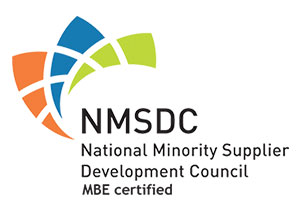The U.S. Equal Employment Opportunity Commission (EEOC) has published online the newest edition of its federal sector Digest of Equal Employment Opportunity Law (EEO Digest), which is now available on the EEOC’s website at https://www.eeoc.gov/federal/digest/vol_2fy19.cfm. The issue is dated Fiscal Year 2019, Volume 2, April 2019.
“It is important for our stakeholders to know what remedies are available to complainants when there is a finding of discrimination,” said Carlton M. Hadden, director of the EEOC’s Office of Federal Operations (OFO). “This article provides helpful information for all parties.”
 The EEO Digest, a quarterly publication, features a wide variety of recent Commission decisions and federal court cases of interest. The EEO Digest also includes hyperlinks so stakeholders can easily access the full decisions that have been summarized. This edition of the EEO Digest contains summaries of noteworthy decisions issued by the EEOC, including cases involving attorneys’ fees, compensatory damages, complaint processing, dismissals, and findings on the merits. It also includes cases discussing remedies, sanctions, settlement agreements, stating a claim, summary judgment, and timeliness.
The EEO Digest, a quarterly publication, features a wide variety of recent Commission decisions and federal court cases of interest. The EEO Digest also includes hyperlinks so stakeholders can easily access the full decisions that have been summarized. This edition of the EEO Digest contains summaries of noteworthy decisions issued by the EEOC, including cases involving attorneys’ fees, compensatory damages, complaint processing, dismissals, and findings on the merits. It also includes cases discussing remedies, sanctions, settlement agreements, stating a claim, summary judgment, and timeliness.
An article entitled, “An overview of common remedies available in disparate treatment claims of discrimination,” is included in the EEO Digest.
In addition to the quarterly EEO Digest, the Equal Employment Opportunity Commission federal sector decisions are available on the EEOC’s website.
The EEOC is the federal government agency responsible for enforcing federal laws that make it illegal to discriminate against a job applicant or an employee because of the person’s race, color, religion, sex (including pregnancy, gender identity, and sexual orientation), national origin, age (40 or older), disability or genetic information. It is also illegal to discriminate by retaliation against a person because the person complained about discrimination, filed a charge of discrimination, or participated in an employment discrimination investigation or lawsuit.
Most employers with at least 15 employees are covered by EEOC laws (20 employees in age discrimination cases). Most labor unions and employment agencies are also covered.
The laws apply to all types of work situations, including hiring, firing, promotions, harassment, training, wages, and benefits.



